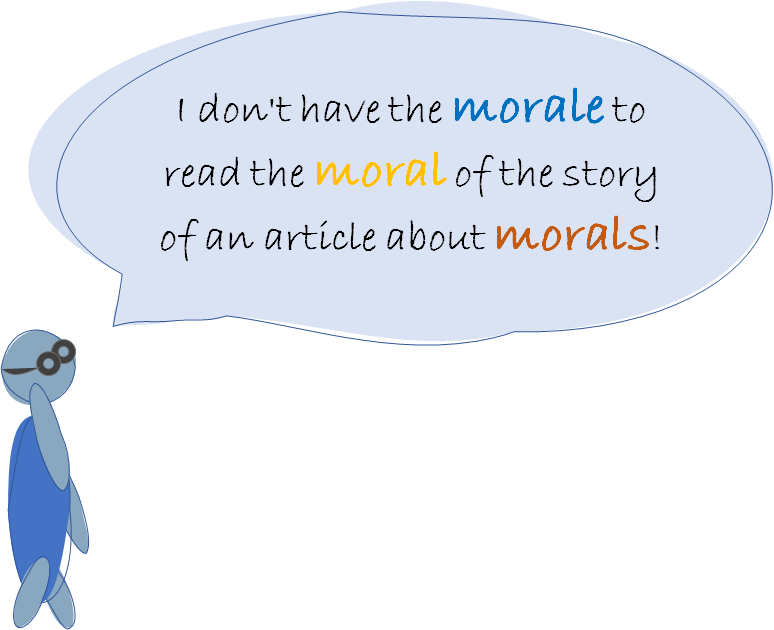I’ve spent the past few years (since I left my mother’s belly ☺), scrutinizing human behavior. In a nutshell, to my surprise, I’ve spotted many ethical persons behaving unethically, most of the time driven by unfavorable contexts. Like most others, I used to believe that ethics is a value. Now I think it’s a behavior. Why? Consider the following contradiction:
a. When asked to list their values, most people integrate ethics in the top 10, while,
b. Simultaneously 30% lie in their resumes, 69% lie to their spouse, 60% lie at least once in a 10 minutes conversation… Without citing countless manipulation attempts that are considered “normal” during negotiation or similar situations and the “insignificant” office supplies many employees take home “by mistake”…
According to C.S. Lewis
“Integrity is doing the right thing, even when no one is watching.”
And I would add
“Integrity is doing the right thing, even when no one is watching and you are faced with a tough situation you have no clue how to get out of while keeping your physical integrity and a decent social image.” — Lewis & K ☺
It’s true that the vast majority of us are sincerely committed to ethics. It does not mean it materializes whatever the situation we are faced with. We all tend to lean towards the easiest choice rather than the right one. It’s all the more tempting when we think no one will ever notice. What I call the fantasy of the “perfect crime” rooted in our shared Hollywood culture.

So, to me, ethics is a value that has no value until it translates into behaviors (especially during tough times). And here are 5 contexts where lying and manipulation are normal to most of us.
I. NEGOTIATION

Description
At the heart of most negotiation strategies lies… a lie… and a subtle dose of manipulation. We use all sort of tricks to mislead our interlocutor on our real motivations & objectives and vice versa. It is considered perfectly normal in line with the natural flow of our business lives.
Problem
Inside a company the tricks, we play externally have an impact on the culture and may be detrimental to your business long term. Check out the following article: Why teaching your teams negotiation tactics is bad for your business. On top, one of the most important things in life is to be able to live in line with our values. There is no way I can claim I’m successful at that, yet I wouldn’t put not respecting my values in my initial plan. Most negotiation schemes embed unethical behaviors from the start. To me, it’s not a fatality.
Solution
The effective solution is not a hack. It requires time and energy but is worth it as it permits living in line with our values whilst building sustainable success.
1. Build a strong product. The more value you deliver to all stakeholders (distributors, end-users…) the less bargaining will take place.
If your customers are hard in nego it means your bargaining power is low. Linking back to how good your product is -K
Accelerate the feedback loop and improve continuously. Often times, negotiation is required as compensation for a non-performing product or feature.
2. Train your teams on real negotiation vs. bargaining only. Nego is about growing the pie before dividing it. Value creation is at the heart of the process. It builds on an abundance vs. scarcity mindset. When there is little to share, it naturally triggers our ancient survival mechanisms.
3. Build a life system where you have enough energy to seek the next customer if you lose the current one. You will hence break free from negotiation tricks.
II. REVENGE / INJUSTICE
Description
Injustice is constant in this world. We witness it live every day at work, in the news… Yet, somehow, we do not relate to it equally depending on whether we are involved personally or not. “Personally involved” links to the following contexts:
- Linked to places we are familiar with; e.g. we do not react the same to attacks in places we’ve been or like vs. places we do not know about.
- Being involved as a person, our relatives, or in general people we deem resemble us. Likewise, familiar places, familiar faces make us feel personally involved.
Problem
When we feel personally involved, we are overwhelmed by the desire to restore justice. Most of the time, we do it by… injustice. Rather than a feeling, it is a shattering urge, indomitable. We think the person (group, country…) deserves a good lesson, especially that s/he dugup the hatchet. S/he should bear the consequences even if unfair. In such a context many make the leap of behaving unethically with a clear conscious.
What can we do about it?
The desire for revenge springs from a feeling that someone deprived us of something significant. While we tend to focus on the material visible elements, in reality, what hurts most is how we live it emotionally. If we are crippling under negative emotions, this means the wound is at the heart of our personality. We consider our self-esteem flayed.
We know from persons that survived extreme trauma that whatever happens to us can make us stronger. This materializes when we integrate that external events, people’s acts and opinions do not determine our self-worth. The strongest barrier against urges of revenge is to understand that our self-worth is ours and no one can take it from us. The intensity of negative emotions naturally dwindles.
III. COMPENSATION BEHAVIORS

Description
When we want something so badly, the kind of things we think we’ll change our life (which obviously almost never happens), we are ready to do anything about it. We tend to put aside all considerations… We call it pragmatism.
Problem
…The first victims of collateral damages are 1. others, 2. our values and 3. most often the planet (ecology). Just observe how a careerist working at Volkswagen would behave when dealing with carbon emissions reporting. And they are not the only ones since many car companies have been found “guilty” of the same wrongs.
According to INC (a Europe based NeuroCognitivism institute), because Hyper-Behaviors are a compensation for a subconscious need, we overweight the “want” and de-prioritize the “how” (including our values).
Solution
Each of us has her/his specific Hyper-Behaviors and getting rid of them requires a specific coaching process.
Let’s tweet:
To me, success is to prioritize our values over our objectives -K
Click to tweet
IV. DATING
I’m not an expert in seduction ☺. I will not risk discrediting myself. You already know how you behave when trying to seduce somebody. You got the point. Next… ☺

V. IN PRESENCE OF “REFEREES”

Description
We, humans, have a natural tendency to rely on others; in a community, it is called complementarity. Each of us adding a specific value to the group. The corollary is that we feel less inclined to contribute in other areas. We believe we accomplished our fair share…
Problem
…Applying this same rule to ethics is a non-sense. It supposes that if some are responsible for ethics we do not need anymore to be it ourselves. Just consider the dynamic of a soccer game in the presence of a referee. Even the best players, will try and misguide her/him into an unearned penalty. Even worse, we ourselves react differently depending on who is doing what. Is it our team or the opponent. Something’s wrong! No?
This behavior is not specific to sports, it translates easily into other contexts provided ethics is outsourced to a third party like a judge in a court. Edison the renown inventor, stole with a clear conscious Tesla’s work. Unfair court cases account for thousands in today’s world.
Solution
I see no other solution than fair-play. The ability to be one’s own referee and proclaim transparently whatever we believe is right even if we may lose short term.
- Learn to prioritize our values over our objectives. Our success-driven society does exactly the opposite. Teach the right priorities (values) to your kids at an early age, they’ll grow up as better citizens.
- Nurture responsibility: we should never outsource ethics to anyone including rulers. Have a look at how this player refused a penalty in a soccer game.
Let’s tweet:
All rights are not right— K
Ethics is choosing not to exercise your rights because you believe they are not right — K
Click to tweet
MORAL OF THE STORY
None of us is an angel. Many behaviors are so entrenched in our brains and shared culture that they pass by unnoticed. They are normal but not acceptable. We should learn to be acute self-observers and progressively take control. At worst recognizing our limitations even, we may be unable to address them and at best avoiding what can be avoided.
In net, this is a lonely process but is worth it. ☺

CLOSING TWEET
When doing what u do, don’t forget who u are— K
Click to tweet
If interested in learning how to work with your nature and not against it, check out my book at WorkWithYourNature.com

